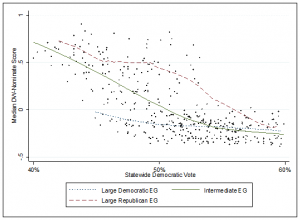UPDATE to the post below: The information I had was incomplete. This settlement still must be approved twice by the Pasadena City Council, which likely will not happen until some time in November.
City will also pay $1 million (presumably in fees). Details to come. (Updated news story).
This is a big deal.
The findings of intentional discrimination against Latino voters were stark.
It was unclear what the 5th Circuit was going to do in this appeal, but the facts were pretty damning.
Now the ball looks like it will be in the Trump DOJ’s court to police Pasadena’s redistricting efforts.
